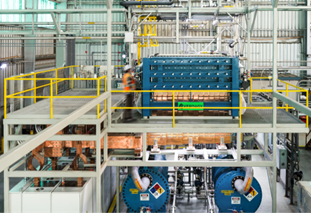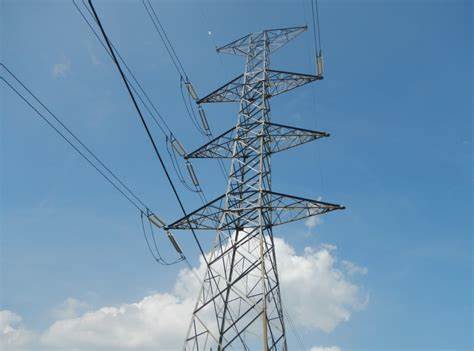 *Sino Hydro Corporation undertakes many projects in Zimbabwe
*Sino Hydro Corporation undertakes many projects in Zimbabwe
13 July 2014, Harare – The Zimbabwean government has taken a big step towards implementation of the Kariba South Hydro Power Station expansion project by setting up a company to take ownership of the plant’s assets, the Financial Gazette’s Companies & Markets (C&M) has established. The formation of a new firm, called Kariba Hydro Power Company, was one of the few outstanding conditions, out of 17 set by the financier of the project, China Export and Import Bank (China Eximbank) for it to release funds for the expansion programme.
Energy and Power Development Deputy Minister, Munacho Mutezo told C&M that the company would be responsible for the implementation of the Kariba South Hydro Power Station expansion project, which is expected to take about three and a half years. “We have already created a new entity, the Kariba Hydro Company, which is a vehicle responsible for the implementation of the Kariba South Hydro Power Station expansion project,” Mutezo told C&M on the sidelines of the recent Zimbabwe National Chamber of Commerce annual congress in Victoria Falls.
“Government has done its bit but we want that (Kariba South Hydro Power Station expansion) project to be self contained and be able to service its debt over 20-25 years. It’s important that this project is undertaken as quickly as possible. If we can’t meet (electricity) demand when the industry is currently operating at about 35 percent capacity, what will happen when industry’s capacity goes to more than 50 percent? By 2018 we should be able to have enough power which we should be exporting.”
Energy and Power Development Minister, Dzikamai Mavhaire also confirmed the development. “Yes the company (Kariba Hydro Company) has been established,” Mavhaire told C&M after the launch of the Sakunda Fuel and Loyalty smart cards in Harare. “I am sure that you are aware that we have also appointed a board of directors led by James Chiuta Dube for that company. We are excited that they are ready to implement the project.”
According to the provisions of the multi-million dollar agreement signed last year between Zimbabwe Power Company (ZPC), a subsidiary of State-owned ZESA Holdings, and China Eximbank, the new company would ring fence revenues until it cleared its expansion loan amounting to US$319,5 million. The government and China Eximbank signed a US$355 million loan agreement for the expansion of the Kariba South Hydro Power Station.
Finance Minister Patrick Chinamasa signed on behalf of the Zimbabwean government while China Eximbank vice president, Zhua Hongjie, represented the bank. Under the agreement, the bank would provide funding amounting to US$319,5 million, representing 90 percent of the total project cost, while government, through ZPC would finance the 10 percent balance amounting to US$35 million.
A Chinese contractor, Sino Hydro Corporation, in 2012 won the right to undertake expansion work for the Kariba South Hydroelectric project which is expected to add 300 megawatts (MW) to the country’s existing power generation capacity. The expansion work at Kariba Hydro Power Station is expected to officially start next month when China Eximbank releases funding for the project.
Zimbabwe is currently facing crippling power shortages with the national power demand at peak periods estimated to be at 2 200MW against available generation of about 1 200MW with the shortfall being imported from regional power utilities. But government, through ZPC, is working to close the electricity deficit in the country through another expansion project at Hwange Thermal Power Station.
The power station is currently using six units and the expansion would see the thermal power station adding two more units which would have a combined generation capacity of 600 megawatts (MW). However, a Chinese company, China Machinery and Engineering Company (CMEC) which had been awarded the tender ahead of Sino Hydro Corporation to undertake the expansion work at Hwange, the country’s largest coal-fired power station, failed to secure funding for the project.
Government, through its procurement agency, the State Procurement Board, has since cancelled the US$1,38 billion tender it awarded to CMEC, which has now been awarded to Sino Hydro Corporation. The development comes after CMEC failed to provide a funding plan to get the project off the ground, 14 months after winning the bid ahead of Sino Hydro Corporation whose bidding price was US$1,17 billion.
Financial Gazette first broke the story on government’s intention to cancel the tender awarded to CMEC in March this year. Mavhaire, who expressed disquiet over the deal, wrote to both the contractor and the Chinese Ambassador to Zimbabwe of the government’s intension to cancel the tender.
“We are still at standstill,” Mavhaire told C&M in February this year in an interview in Livingstone, Zambia. They have not been able to come back to us with a funding plan. We have already made gestures to both of them (CMEC) and the Ambassador of China to Zimbabwe as a diplomatic way. We have concluded as government of Zimbabwe that CMEC will possibly find it difficult to be able to extend Hwange Power Station. But because they are coming from a friendly country, we want to solve this in an amicable manner.”
Zimbabwe is also pursuing several other power projects which include the solar projects and the US$2,5 billion Batoka Gorge project along the Zambezi River, some 54 kilometres downstream of Victoria Falls. The multi-billion hydro power project which is being driven by the Zambezi River Authority, a company owned by the Zimbabwean and Zambian governments is expected to generate 1 600MW of electricity to be shared equally by the two countries.
* Phillimon Mhlanga – Financial Gazzette



